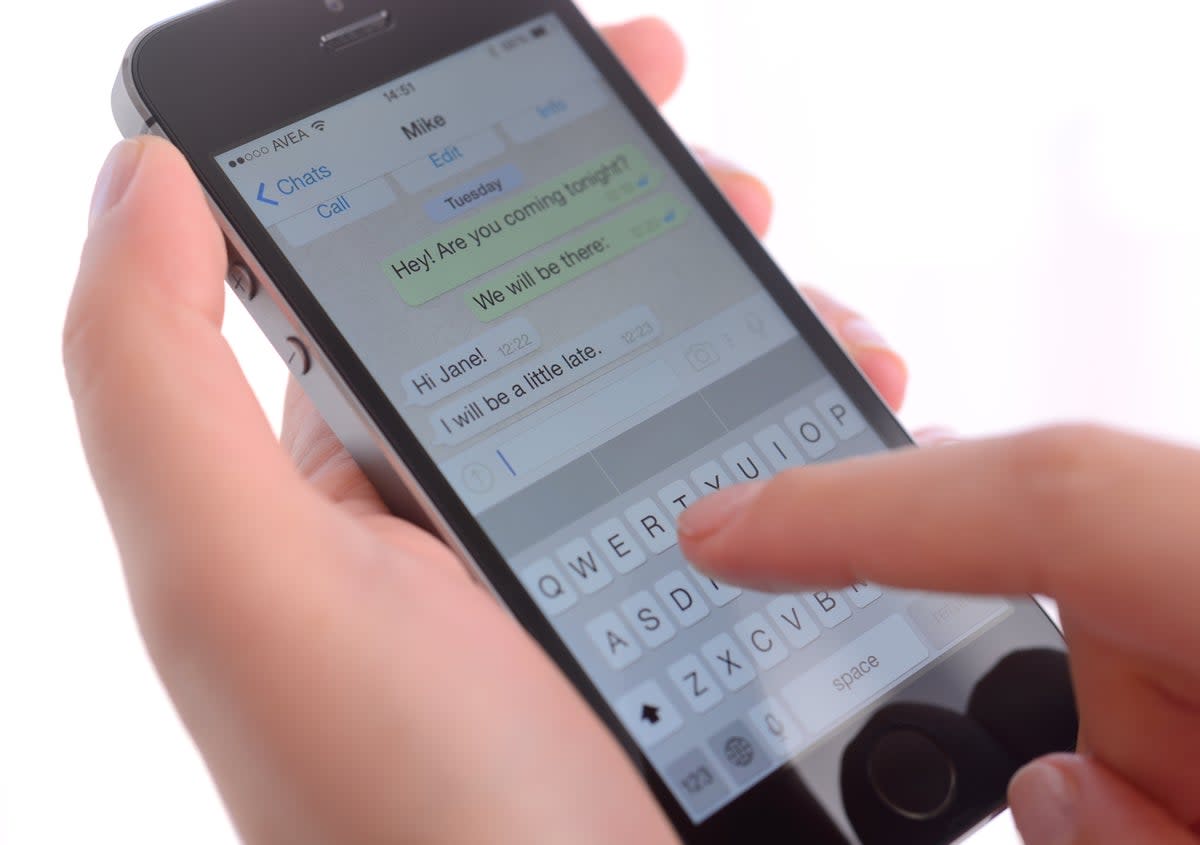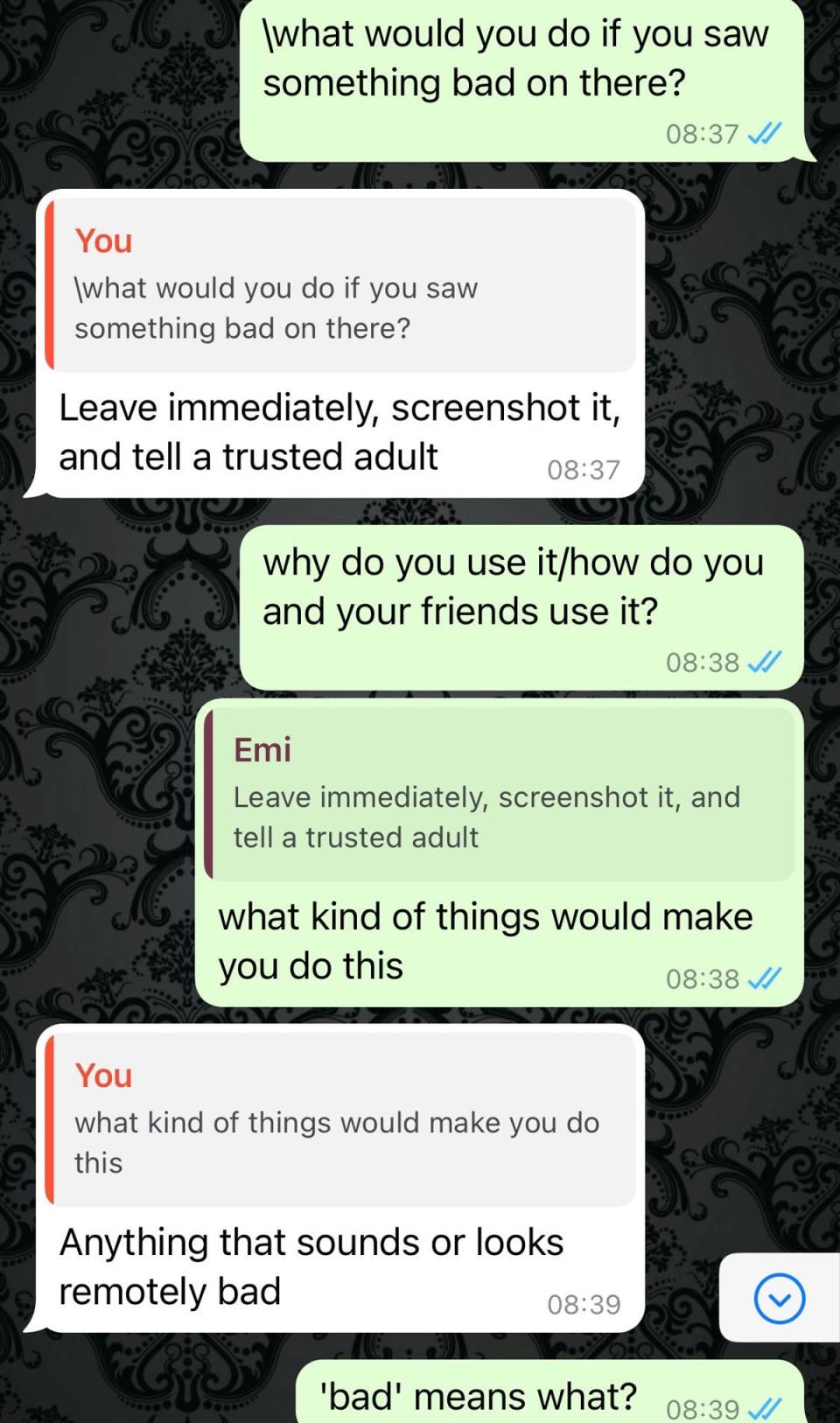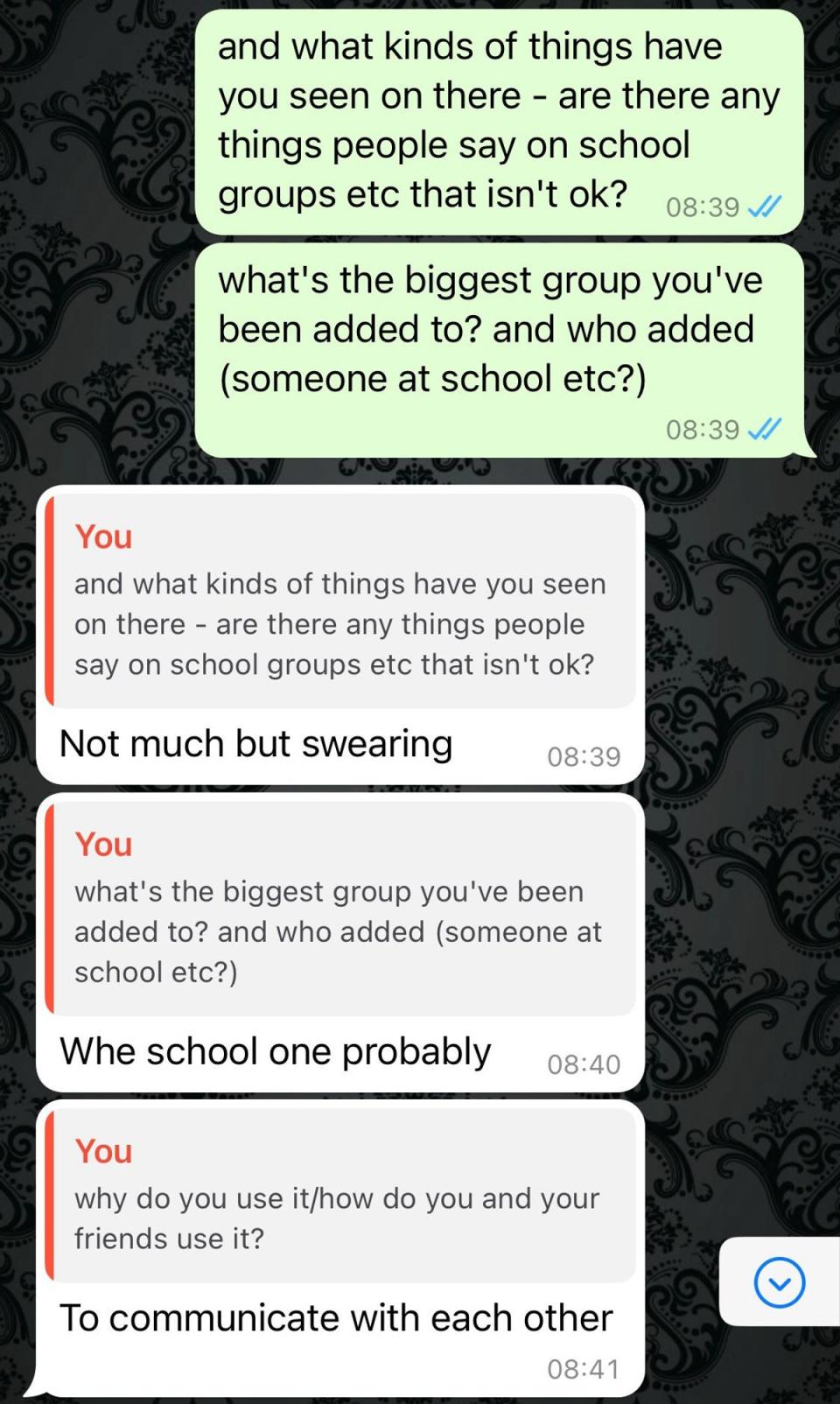Voices: What my 12-year-old told me about WhatsApp groups changed my mind about a ban

Never has the generational divide been more apparent between me and my kids than when it comes to how to create a group on WhatsApp; swiping down on the home screen to turn down the brightness levels; or figuring out why the iPad is so slow (top tip: because you have too many tabs open. Take it from my seven-year-old).
Just the other night, I told my 12-year-old daughter that I didn’t know how to record the screen on my iPhone 12 – and as well as muttering “seriously?”, she (quick as anything) dived into my settings and sorted it out. Hey, Mum learned something new.
Why am I so behind when it comes to technology? And feel so old and wizened? Well, the easy answer is that I grew up in the dial-up modem generation; a time when the only access to I.T at school – even at university – was via the shared “computer lab”.
Nobody had laptops, or smartphones – I got my first mobile phone (a Nokia brick) when I arrived on campus, because my parents belatedly agreed it was probably wise to give me a means to call home now that I’d moved 150 miles away. If it doesn’t come as second nature to me, or to you, then that’s because it isn’t. We weren’t raised with Face ID. But that’s no excuse – now – for not making sure we are wise to the risks.
As well as offering instant information and communication, we are all aware how smartphones also offer a portal into a dark and murky world of disinformation, unsolicited d**k pics and harm. Self-harm, too – as shown by sobering reports that kids as young as nine have been added to WhatsApp groups actively promoting self-harm, sexual violence and racism, according to a BBC investigation.
And now, Meta has come under fire for a “tone deaf” change to its age settings (16 lowered to 13) on WhatsApp, which came into force in the UK and EU on Thursday.
I didn’t even know the age limit had been 16. My 12-year-old daughter just got a new iPhone (and is on WhatsApp) and now I’m discovering that it’s potentially irresponsible for them to lower the age to what is still older than my daughter. Am I a terrible parent? Should I impose an immediate, panic-stricken ban and boot her off it?
Well... no to both of those. A ban is so hardline. I’ve never been a strict parent, I don’t believe in it. And yes, my daughter is on WhatsApp – but when I decided to ask my daughter what she thought (FWIW, I’m a firm believer that grown-ups should be asking children for their opinion on the issues that concern them), her answer completely changed my mind about a ban.
Funnily enough, we communicated on WhatsApp about the issue, so here are some of our messages (shown in their natural setting):


She uses WhatsApp to communicate with her friends – doing away with it for her age group won’t help her, it’ll just force them to use another platform (one that might be far harder for us parents to work out – does anyone around here understand Snapchat? Because I don’t).
My little girl also told me quite stridently that I should trust her, because I’ve taught her to be independent, to make her own mind up rather than following the crowd – and to recognise what might be “inappropriate”.
I can’t help but feel proud, and tentatively hopeful, because she’s right. I taught her the correct names for her body (including her private parts) when she first began to talk; have talked openly to her about periods since she was three, and at seven, about porn – and though all of these she was curious, trusting and reflected on what was said.
And when new cyberflashing laws were passed last month (sending non-consensual intimate images has become a criminal offence), we found out about it together via the radio and had a chat about it while she was getting ready for school.
I even asked her outright if any of the boys she knew had ever sent a naked picture of themselves to her, or if she’d ever seen nude images or videos on WhatsApp – and her response was, “Ugh, NO! (But I’d tell you if I did.)”
I’ve also, she reminded me, heavily impressed upon her the need to self-report if she sees something that makes her feel uncomfortable – which she has done, several times. It’s not been without issue: I once had to mention to another girl’s parent that her daughter had posted a YouTube video to their small WhatsApp friends’ group that had underlying sexual connotations. Her child, of course, hadn’t understood the subtext. But the really crucial thing, to me, was that my daughter felt able to tell me about it.
And that’s the really groundbreaking opportunity, here, in my opinion: to talk to them. We can’t protect our kids all of the time. We can’t stop them, sadly, from catching sight of inappropriate material until they’re old enough to understand it – but we can equip them and empower them with the confidence to discuss it.
If our kids feel too scared to admit someone is saying something horrible on WhatsApp, because they think we’ll go mad and punish them for it – or punitively take away their devices when it wasn’t their fault to begin with – then of course they’re not going to tell us about it. Which means it gets left unsaid. Unaddressed. Filed under “things we don’t discuss”. And they don’t have a wise and sensible adult explaining the truth about whatever they’ve seen.
And yes, we could row back on WhatsApp and other social media, or ban smartphones outright for under-16s, but I’m not sure that would even prove the net positive some suggest it would be. The phrase “horse, bolted” springs to mind. Which isn’t to say we don’t try and impove things, but rather it’s recognising that we now live in a different world, and adaptation is key to survival.
Kids are curious and creative. Ban them from WhatsApp and they’ll just go dark on another platform. Take away their smartphones, and they’ll find a way to “hack” Google classrooms using the family iPad. Kids will always find a way to get around their parents. Rebellion is a natural part of growing up.
Plus, it’s perhaps less about technology and more about the way our world catches up with kids, rather than the other way around.
I may be an ancient millennial, but I first saw porn at a sleepover at a friend’s house, aged 10 – long before smartphones existed. The dad of the house was watching it on TV, completely ignorant to the fact that the TV in his daughter’s bedroom was linked; that whatever he was watching, we were too. If I’d felt able to talk to my parents about what I’d seen, I’m sure I would not have been so confused and affected by it.
The world has changed dramatically since I was 12 – my kids refer to my childhood as “the olden days” without a hint of irony. And it is bound to keep changing further, in ways we can’t even imagine.
But what I hope doesn’t change, as my kids grow up, is that they are always able to talk to me whenever they feel worried or disturbed by something they’ve seen or heard online. That in this fast-changing world, where parenting is very much done on instinct or on the fly, the one thing they can count on is that we will deal with what comes up on social media, IRL or on WhatsApp together, as a team.
Because that’s what a family is. And Mum is never leaving the group.

 Yahoo News
Yahoo News 
